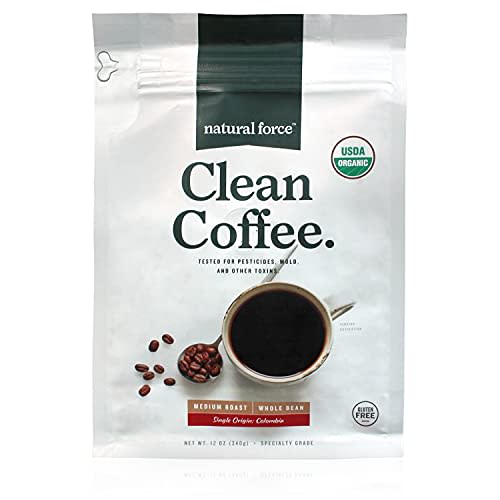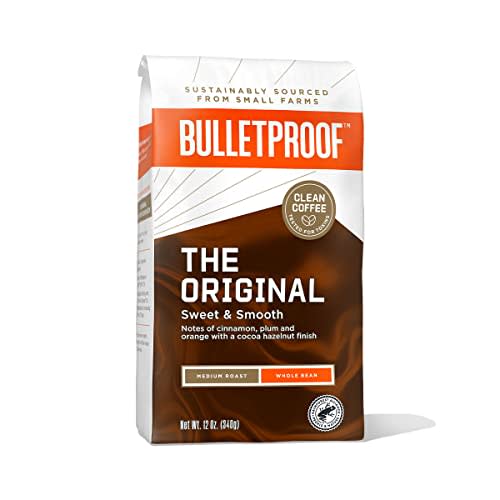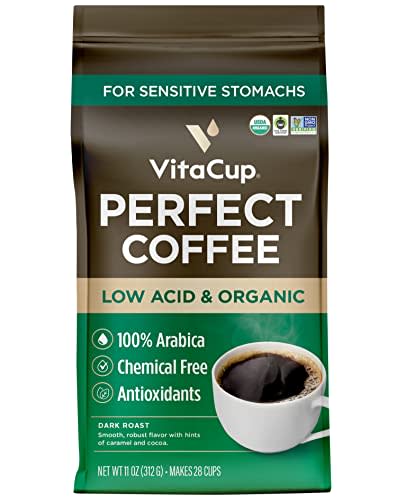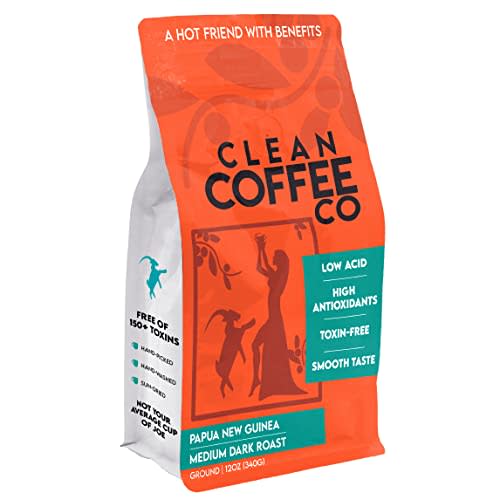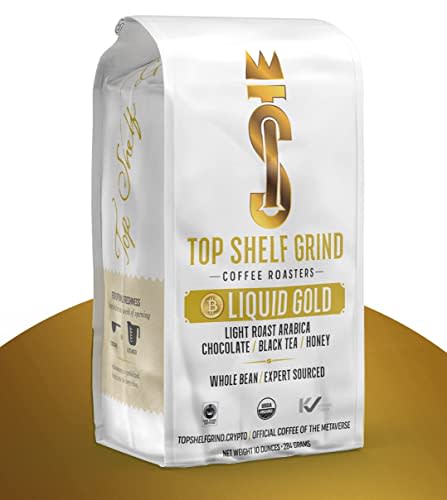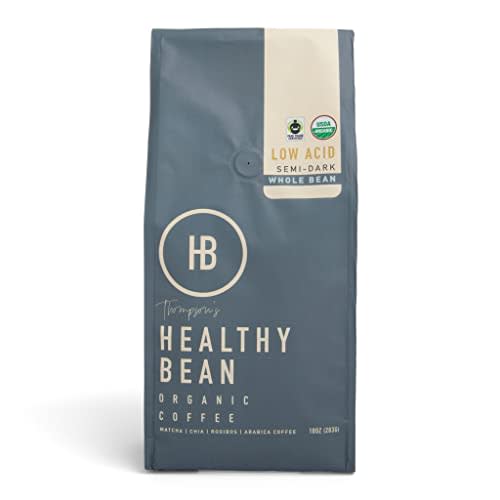According to Research, 45% of Coffee Beans Contain Toxic Mold—Should You Be Worried About What’s In Your Cup?
Plus, mold-free coffee options to try.
If you see mold on your bread or leftovers, chances are you’re going to toss it straight in the trash. But what about mold in your coffee? Coffee mold is a fungus that can grow in coffee beans and coffee grounds. The toxic compound that mold produces is called mycotoxins and it’s not as visible as mold you may see growing on foods past their expiration date.
Drinking moldy coffee certainly doesn’t sound very appetizing and anything with “toxin” in its name sounds dangerous to consume. But just how likely is it that there are mycotoxins in your coffee and how worried should you be? Keep reading to find out.
Here at Parade.com, we're all about sharing products we love with our audience. When you make a purchase on an item seen on this page, we may earn a commission, however, all picks are independently chosen unless otherwise mentioned.
Related: If You Love Coffee a Latte, Here Are 31 Types of Coffee—From Affogato to Vienna
What Are Mycotoxins?
Dr. Christopher Hendon, PhD, an assistant professor of chemistry at the University of Oregon and a leading scientist who studies coffee, explains that mycotoxins are toxic compounds produced by fungus. “They live on the surfaces of food and are poisonous in high concentrations,” he says, adding that it’s the compounds produced by mycotoxins that are harmful. There are different types of mycotoxins and the ones most common in coffee crops are aflatoxin B1 and ochratoxin A.
Mycotoxins can grow on a wide range of moldy foods, not just coffee. Moldy nuts, spices, cereal and dried fruit can all contain mycotoxins. Food (or coffee) stored in warm, damp and humid conditions can all lead to mycotoxin growth, but Genevieve Kappler, a brewing technologist and Director of Coffee and Roasting at Roasting Plant Coffee, says they can also infect plants and any crop grown in a field, including coffee, corn and other food crops, or can develop during the storage and throughout any food processing stage. “Produce, crops and agricultural goods, including coffee, are at risk when the product has a high moisture content because moisture and related water activity can cause the food to become a breeding ground for mold and fungus, which, in turn, can produce mycotoxins,” she says, adding that mycotoxins can also spread through the coffee transport process.
Dr. Hendron emphasizes that when it comes to the negative effects of mycotoxins, it’s the amount consumed that matters. He explains that consuming a large amount of mycotoxins is bad for the body (it can weaken the immune system and increase the odds of liver cancer and respiratory problems), but small amounts are not considered dangerous.
Related: Wait, Is It Bad to Put Milk In Your Coffee?
How Likely Is It That Your Coffee Has Mycotoxins?
Here’s the thing about mycotoxins: They’re inescapable. Scientific studies show that almost all foods have very low amounts of mycotoxins and virtually everyone’s blood would test positive for ochratoxin A, which is a type of mycotoxin. According to one scientific study, 45 percent of commercially available coffee beans tested positive for ochratoxin A.
When it comes to coffee, both Dr. Hendon and Kappler emphasize that it’s unlikely anyone is consuming an amount of mycotoxins that they should be worried about. “While mycotoxins can be present in a variety of food products, their occurrence in coffee beans is very low and found in low-grade commercial coffees,” Kappler says. “The real question is if mycotoxins are showing up in brewed coffee and the answer to that question is that the amount is very, very low,” Dr. Hendon says.
Dr. Hendon explains that compounds are lost during the coffee roasting process; the longer coffee is roasted, the more compounds are lost. This is why a light roast coffee has more caffeine than a dark roasted coffee. “After roasting, the quantity of mycotoxins becomes virtually undetectable,” Dr. Hendon says. According to a scientific study, roasting reduces mycotoxin levels by between 69 and 96 percent.
Related: 11 Sneaky Ways Your Coffee Habit Could Be Causing Weight Gain, According to Dietitians
What’s more, Dr. Hendon says that the vast majority of coffee companies test for mycotoxins. “There is a test that exists specifically for coffee called the ELISA (enzyme linked immunosorbent assay) test that is available to consumers and that can help detect the presence of mycotoxins such as the ochratoxin in coffee, the most ‘infamous’ one,” Kappler says. However, she adds that not every coffee company has access to lab testing, which is why it’s important for coffee companies to stay vigilant throughout the production process, starting from the farm all the way to the milling, storage, and transport stages of the supply chain.
“Also, mycotoxins cannot develop after beans have been roasted because of the very low moisture content and water activity of just roasted coffee,” Kappler says. “However, it is still possible for mycotoxins [to be] present in any environment with a lack of sanitation or poor storage practices to contaminate coffee and other food products.”
The bottom line is that you don’t have to be worried about consuming toxic amounts of mycotoxins in your coffee. But if you are worried, Kappler offers some advice: “Purchase high-grade specialty coffee beans, ideally from your local roaster so that they’re fresh, full flavored and smooth,” she says. “Also, look for traceability of your coffee. The more information available on the coffee, including where it was farmed and the exact location, the better.”
The next time you pour yourself a cup of coffee you can rest assured that you’re enjoying a beverage that’s known to benefit the body in many ways, not cause it harm. There’s no need to give up your coffee habit anytime soon.
Mold-Free Coffee Options To Try
While the amount of mycotoxins in your coffee is unlikely to pose any real threat, there are some mycotoxin-free coffee options on Amazon. Give these ones a try:
Natural Force Organic Clean Coffee
Natural Force - Organic Clean Coffee Classic, Mold & Mycotoxin Free, Lab Tested for Toxins & Purity, Low Acidity, Incredible Taste & Aroma, Whole Bean Medium Roast, 12 oz
The Mentalist Whole Bean Coffee
The Original Whole Bean Coffee, Medium Roast, 12 Oz, Bulletproof Keto Friendly 100% Arabica Coffee, Certified Clean Coffee, Rainforest Alliance, Sourced from Guatemala, Colombia & El Salvador
VitaCup Perfect Low Acid Coffee
VitaCup Perfect Low Acid Coffee Ground, USDA Organic & Fair Trade, Mycotoxin Free, Dark Roast Guatemala Single Origin, Clean & Pure for Drip Coffee Brewers and French Press, 11 ounces
Clean Coffee Co Low Acid Coffee
Clean Coffee Co. | Low Acid Coffee, 12oz Bag Ground Coffee | Medium Roast from Papua New Guinea | Toxin and Mold Free, Antioxidant Rich, Smooth Taste for Espresso, French Press, or Iced Coffee
Organic Light Roast Whole Bean Coffee
Organic Light Roast Whole Bean Coffee, The Best Espresso Beans from Peru - Fair Trade, Single Origin Mycotoxin & Mold Free Fresh Peruvian Purity | Super Healthy Arabica for Peak Performance - Low Acid
Healthy Bean Coffee
Healthy Bean Coffee - Low Acid Coffee, Superfood Infused Whole Beans, USDA Organic, Mycotoxin Free, Semi-Dark Roast, 10 oz
Next up, find out if drinking coffee on an empty stomach is bad for you.
Sources
Dr. Christopher Hendon, PhD, assistant professor of chemistry at the University of Oregon and a leading scientist who studies coffee
Genevieve Kappler, brewing technologist and Director of Coffee and Roasting at Roasting Plant Coffee
